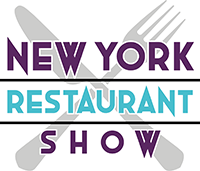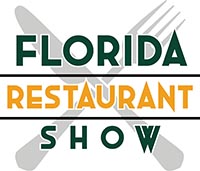By Don Scaramastra
COVID-19 continues to blaze its fearful path across our country, while government stay-at-home mandates and prohibitions on even the smallest gatherings have brought the catering business to a standstill, forcing the closure of kitchens as well as dining and meeting spaces. While there is talk of “re-opening” the economy, it’s unclear whether businesses and the public will choose a room over Zoom any time soon.
If you own a catering business, what should you do to keep your business afloat? For some, business interruption insurance may be an option. It’s typically included in a property insurance package, and kicks in when there has been physical loss or damage to property.
If a fire forces a caterer to close his kitchen while he repairs the building and replaces everything inside, property coverage can pay to repair or replace items lost in the fire. Business interruption coverage will then pay the net income that would have been earned absent the fire, plus costs that continued after the loss, including payroll. Coverage begins after an initial “waiting period,” typically 24 to 72 hours after the loss, and continues until the caterer is reasonably able to repair or replace the lost or damaged property and resume business, and sometimes after that. Most policies also cover the extra costs incurred to keep business going in the meantime.
Basic business interruption insurance covers net income loss and extra expenses resulting from loss or damage to property at your insured premises. But what about event and meeting spaces caterers don’t own, but whose events they regularly cater? Some policies contain “contingent” insurance that covers business owners when their suppliers and customers suffer a loss that leads to lost business. Not all policies contain this coverage; caterers should read theirs carefully to see if it does.
Meanwhile, civil authority coverage is another extension that many policies include. This covers lost income due to a government directive that restricts access to a location and, often, to those of caterers’ customers and suppliers, due to loss or damage to nearby property (usually within one or two miles of the business).
But even if a policy provides coverage, don’t expect the insurance company to quickly pay a COVID-19 claim. Many insurers are instead signaling their intent to deny coverage.
Many insurers wrongly claim that there is no coverage absent damage to the building structure or things inside it. In fact, anything that eliminates or impairs the usefulness of a structure may be covered. In the case of civil authority coverage, the question will typically be whether viral contamination caused the loss of use of property near the caterer’s kitchen or event venue, which in turn led to a government order that prevented customers from patronizing it. These days the virus seems to be everywhere—in hospitals, homes, public transportation, doctor’s offices and stores. It may not prove difficult to trace government orders affecting a business to nearby viral contamination.
Some insurance companies have pointed to exclusions for pollutants or contaminants. But these rarely include viruses. Unless a policy clearly does so, this exclusion should not prevent you from obtaining coverage.
Others will point to virus exclusions. If a policy contains one, if the exclusion is clear, and if the coronavirus caused your loss, then there might be trouble. But if not, and if some other covered event contributed to the viral contamination, which in turn led to business interruption loss, the business may be covered.
Other issues may pop up. For example, if the owner has not thoughtfully prepared and submitted business income worksheets and made sure to check and update their insured values (something to avoid in the future), there’s a good chance that even if the business is covered, it is under-insured.
Given all this, many wonder whether they should file a claim. Before deciding, caterers may want to check with an insurance lawyer. But unless a particular situation clearly rules out coverage, there’s a good chance owners will decide that it makes sense to submit a claim, even if the insurance company will initially deny it. If a claim is filed, be prepared to complete and submit a “proof of loss” form down the road, which will show the amount of the loss. For those who have never seen such a form, ask your broker to show you examples or, better yet, the one your insurance company typically uses.
Meanwhile, a number of dining establishments—perhaps most famously, Napa Valley’s The French Laundry—have sued their insurers over business interruption losses. Some seek to file class actions on behalf of other restaurants whose insurers have denied coverage. No one knows how those cases will be resolved, but if courts allow any of these to proceed as class actions, they could affect caterers’ rights, and maybe strengthen your own insurance claim.
ABOUT THE AUTHOR

Don Scaramastra is a principal at Foster Garvey in Seattle, Wash. Scaramastra has successfully represented clients in litigation concerning insurance coverage, antitrust and competition issues, environmental cleanup cost recovery, and other complex issues. He can be reached at don.scaramastra@foster.com.










